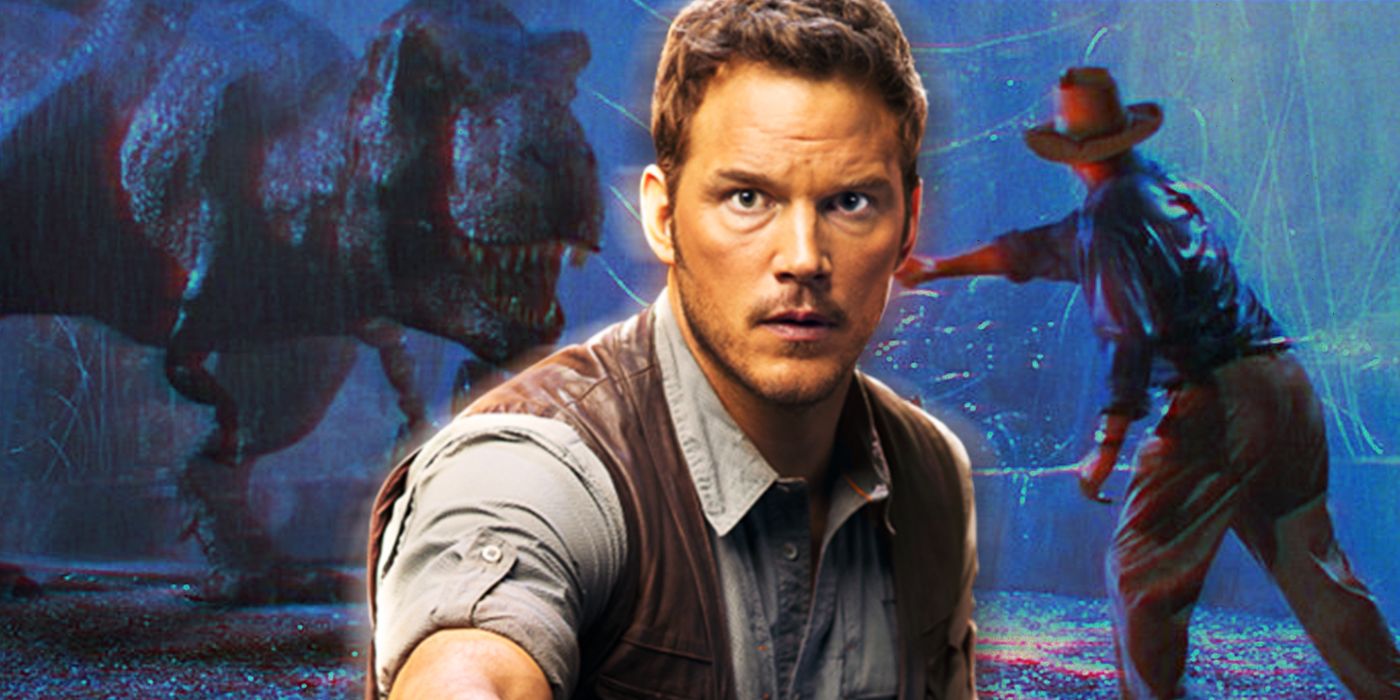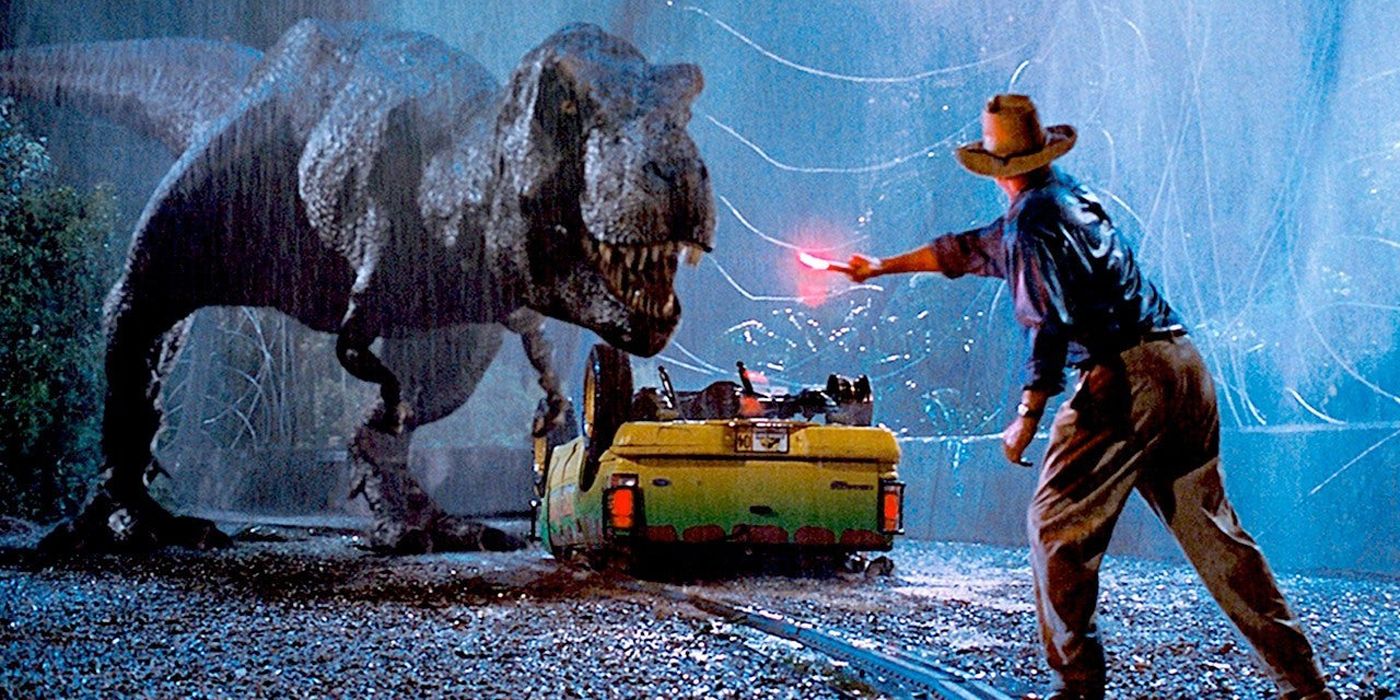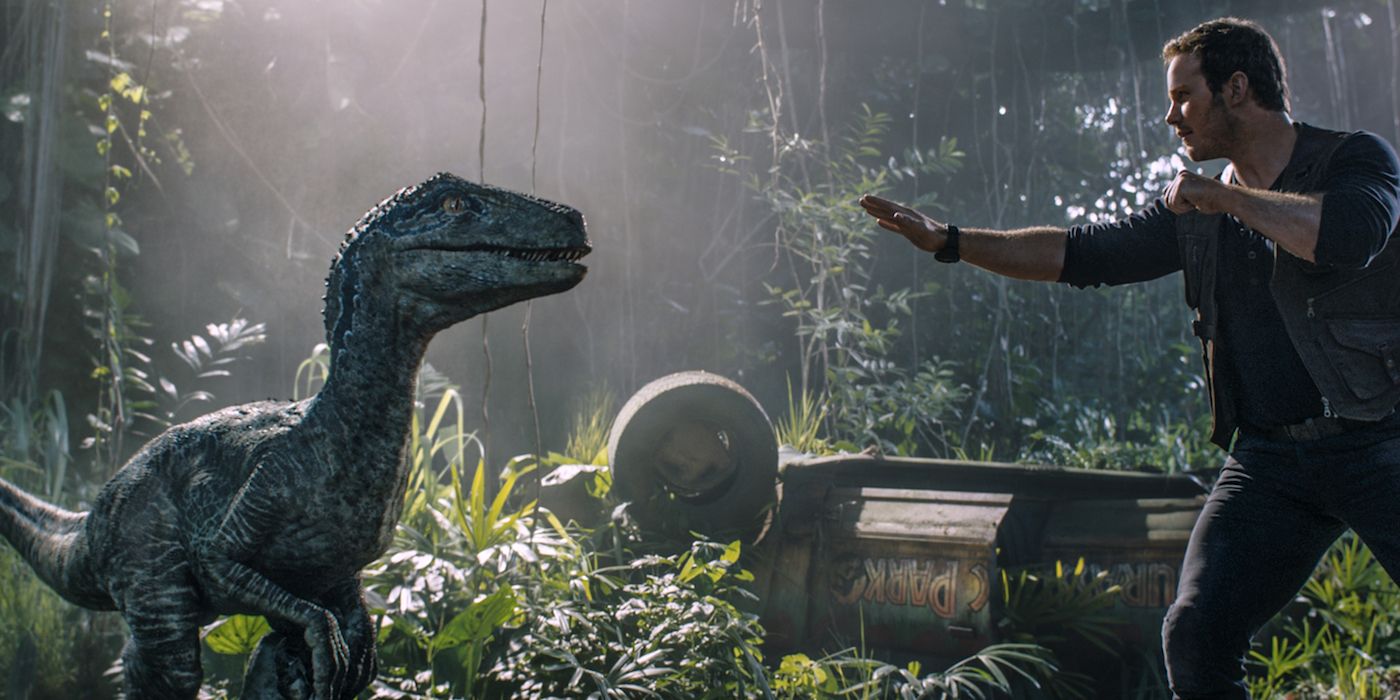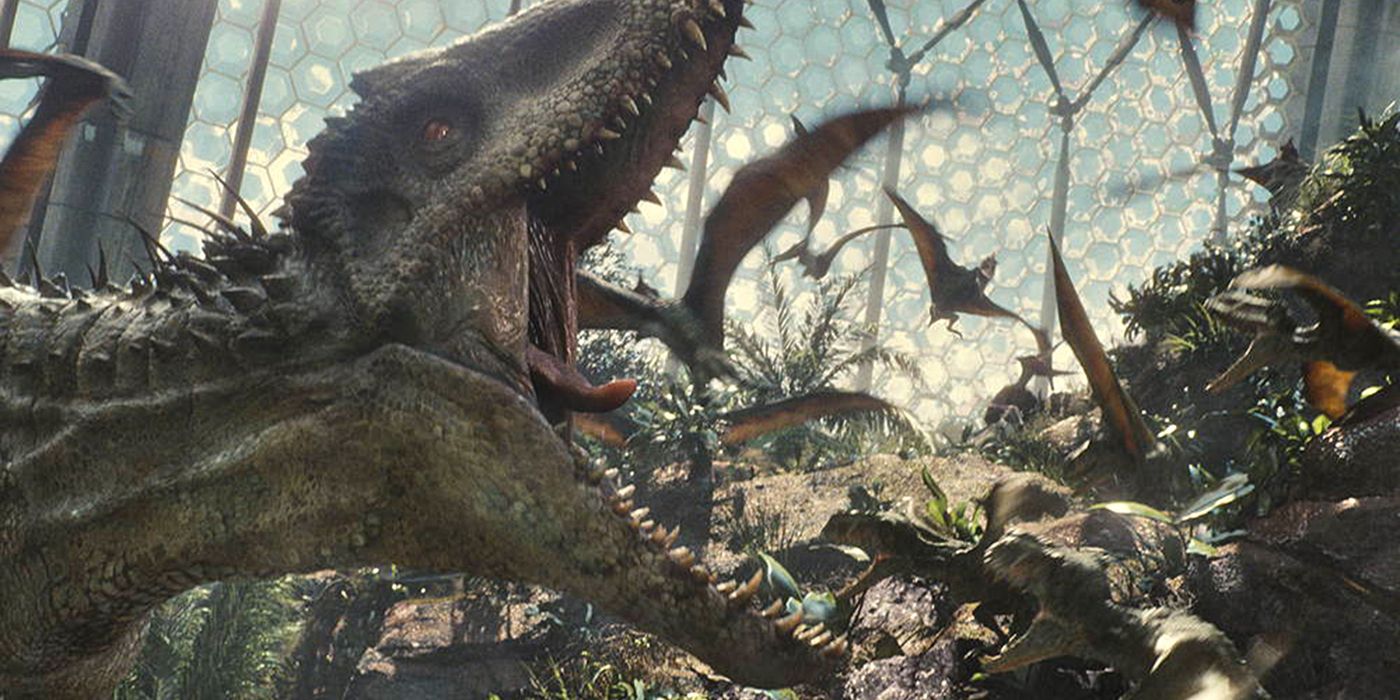Colin Trevorrow's Jurassic World acts as both a continuation and a reboot of the original Jurassic Park trilogy, and in doing so doesn't miss many chances for callbacks. From showing the original visitor's center to sampling the soundtrack, the Jurassic World trilogy happily links itself back to the original trilogy whenever possible.
Jurassic World also makes it a point to address some of the original park's mistakes. Dinosaurs are given much more space than before, provided with enrichment and kept in containment more effectively. By the time of the first Jurassic World movie, the park has run several years without incident and, on the surface, things are going well. This, of course, changes when the Indominus Rex escapes and wreaks havoc. But there's something about the I. Rex that doesn't compute, aside from the questionable decisions leading to its creation. It is viewed as a monster from the start, even by the behavioral experts -- and yet, its behavior makes sense when viewed through the lens of the first movie.
One main issue the fandom brings up about the original park is that the dinosaurs lack enrichment, something all animals need to thrive. They need to be interacting with things that spark their interest. It's why zoo animals are given toys or new food or sometimes even ice and snow to play with. Something that's different and interesting keeps them stimulated and healthy, as boredom often leads to destructive behavior. As Dr. Grant says in the first Jurassic Park movie, "The T. Rex doesn’t want to be fed; it wants to hunt."
This is shown when the dinosaurs escape and start interacting with new things outside their environment. The T. Rex interacts with the cars much like any curious animal, smelling them, nosing them to see how they react and biting them because her jaws are her main way of interacting with the world, much like how a parrot will gingerly bite something new. The Dilophosaurus, in its interactions with Nedry, is constantly watching him, tipping its head to evaluate him as he moves, looking when he throws away the stick before returning its attention to him, the new living thing worth investigating. Even the raptors, possibly the most maladjusted dinosaurs in the park, interact with the world around them with an animalistic curiosity -- nosing and licking the ladle that fell, running after a fast-moving object because of predator instincts and hunting in a coordinated fashion. As Dr. Grant tells Lex, they're animals, and they behave as such.
With that in mind, the I. Rex is put in a situation much like the raptors in the first Jurassic Park movie: a too-small enclosure where it's fed via a crane. It is made from at least two apex predators that prefer active hunting and yet is passively fed and kept in a small space. Even considering how it grew past projected sizes, the shown enclosure doesn't seem like nearly enough space. So when the I. Rex escapes, it behaves much like a high-energy dog breed let into a chicken yard: suddenly, it's surrounded by wide-open spaces with things running and screaming and reacting when it bites into them.
The I. Rex is now over-stimulated and engaging in common predatory behavior, that of surplus killing. This can be seen every time it encounters something new -- Owen Grady gets close when he says it's trying to find where it sits on the food chain but misses the mark when he says it's killing for sport as though it's willfully malicious. While the I. Rex is killing for sport, this is because it's never been given the necessary enrichment. Instead, it's viewed as a thing and then punished for it.
What makes this worse is the fact that there's no clear reason to do this to this specific dinosaur --especially compared with how the other animals are treated. The raptors and the Mosasaurus are shown engaging in hunting activities initiated and controlled by their handlers. The Mosasaurus may be made to reach for its meal for show, but it's no different from how crocodiles are fed in the Australian Zoo; it shows off the animal and simulates how they hunt in the wild. The raptors, which in Jurassic Park III are theorized to have intelligence comparable to primates, are shown being trained, as any intelligent animal in captivity might be, and interacting with humans routinely. They're still fairly wild but much better along for the enrichment they receive.
Compare and contrast how the I. Rex is treated from birth. Unlike John Hammond's approach in the first Jurassic Park, no one seems to be monitoring the I. Rexes hatching -- which, considering Dr. Wu's apathy toward the raptor hatching in the movie, makes some sense. Viewers are told that the I. Rex ate its sibling, but they are not given any context; baby chickens will peck each other to death if they perceive weakness, to give a real-life example. Without being monitored, there's no saying how long the infant dinosaurs were left to their own devices, or if it happened later from some complication of the genetic manipulation. The narrative wants the audience to believe that this is an irredeemable monster so they can feel triumphant at its eventual demise, and yet its behavior is still that of an animal, as in the first movie.
And this is where Jurassic World not only makes the mistake that Jurassic Park did but makes it worse. The I. Rex is only ever seen as an asset, not an animal, and its behavior is considered willfully malicious. Yet, when compared to animal behavior -- when compared to the first movie, even -- its situation and subsequent behavior have natural explanations. With the first park and the other animals to consider, the I. Rex was purposefully put in this situation, making it an abused animal with a tragic end rather than a vicious movie monster that got what it deserved.




